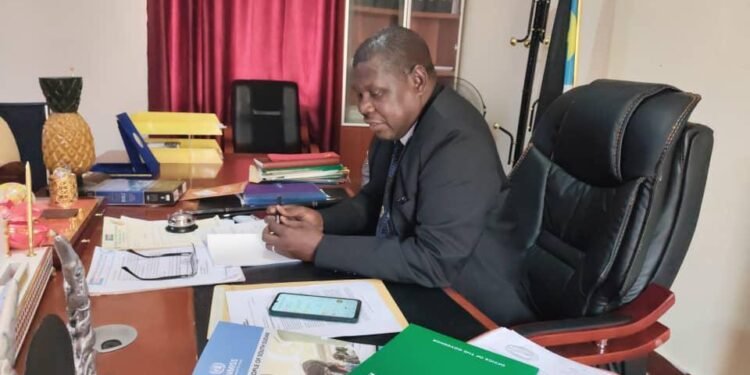In a landmark declaration during the swearing-in ceremony of the new Speaker of the Western Equatoria Transitional Legislative Assembly, Governor Barrister James Al-Taib Jazz Berapai delivered a powerful speech cementing the restored Azande Kingdom as a constitutional pillar of governance and social harmony within the state.
The Governor praised President Salva Kiir Mayardit for what he called a “generational milestone” the official reinstatement of the Azande Kingdom, executed under the constitutional framework of the Local Government Act of 2009 and in direct response to the people’s demand for cultural autonomy.
“We are privileged, as a state and as a new generation, to have the Azande Kingdom restored by His Excellency General Salva Kiir Mayardit,” said Governor Berapai.
“My administration shall not leave the Kingdom behind it is another pillar of governance in our state.” He added
Berapai’s statement was met with thunderous applause, signaling what many believe to be a new era of political, cultural, and traditional cooperation in Western Equatoria.
In a tone both reverent and firm, Governor Berapai pledged a cooperative approach between the state government and the traditional Kingdom, stating his administration would work to codify new laws that recognize and empower the Kingdom as a co-governing authority.
“We shall formulate laws governing both the state and the Kingdom to assist, side by side, and deliver social services to the people of this great and beautiful state,” he stated.
The Governor called on His Majesty the King of Azande to take an active role in promoting community security, peace building, and cultural education, particularly targeting the youth.
“The Kingdom is expected to instill in the young ones good traditional practice and respect for elders and women, especially our Muslim sisters. It should encourage school attendance, discourage idleness, and uphold our moral traditions.” Said the governor
He further emphasized the need to monitor the increasing trend of unsupervised teenage migration across state lines and called on traditional leaders to help guide the youth toward responsible citizenship.
Governor Berapai didn’t stop at symbolic rhetoric. He announced that taxation to the Kingdom shall be legally recognized, and any lands or properties historically belonging to the Kingdom must be returned to traditional authority.
“Any piece of land which belongs to the Kingdom or citizenship across the state shall be relinquished unconditionally,” he declared,
“for the traditional authorities to practice their legal rights in accordance with traditional and customary laws.”
In a particularly emotional moment, the Governor unveiled a formal resolution from the Council of Ministers regarding the late King Gbudue’s tomb, calling for the immediate return of surrounding facilities to the Kingdom.
“All the facilities around the tomb of His Majesty Gbudue should be relinquished to the Kingdom immediately,” Berapai stated.
“I present this resolution to you, Honorable Members, to be ascended into law.”
The speech was not just a political statement—it marked a significant cultural rebirth.
In re-establishing the Azande Kingdom as both a traditional and constitutional entity, Governor Berapai positioned the Kingdom as a necessary partner in rebuilding societal values and ensuring peace in a region long challenged by instability and neglect.
Observers say the move could become a blueprint for reconciling traditional leadership with modern governance across South Sudan.
Whether this fusion of throne and state will succeed in uplifting the people of Western Equatoria remains to be seen.
But for now, the Kingdom is back and this time, by law.












